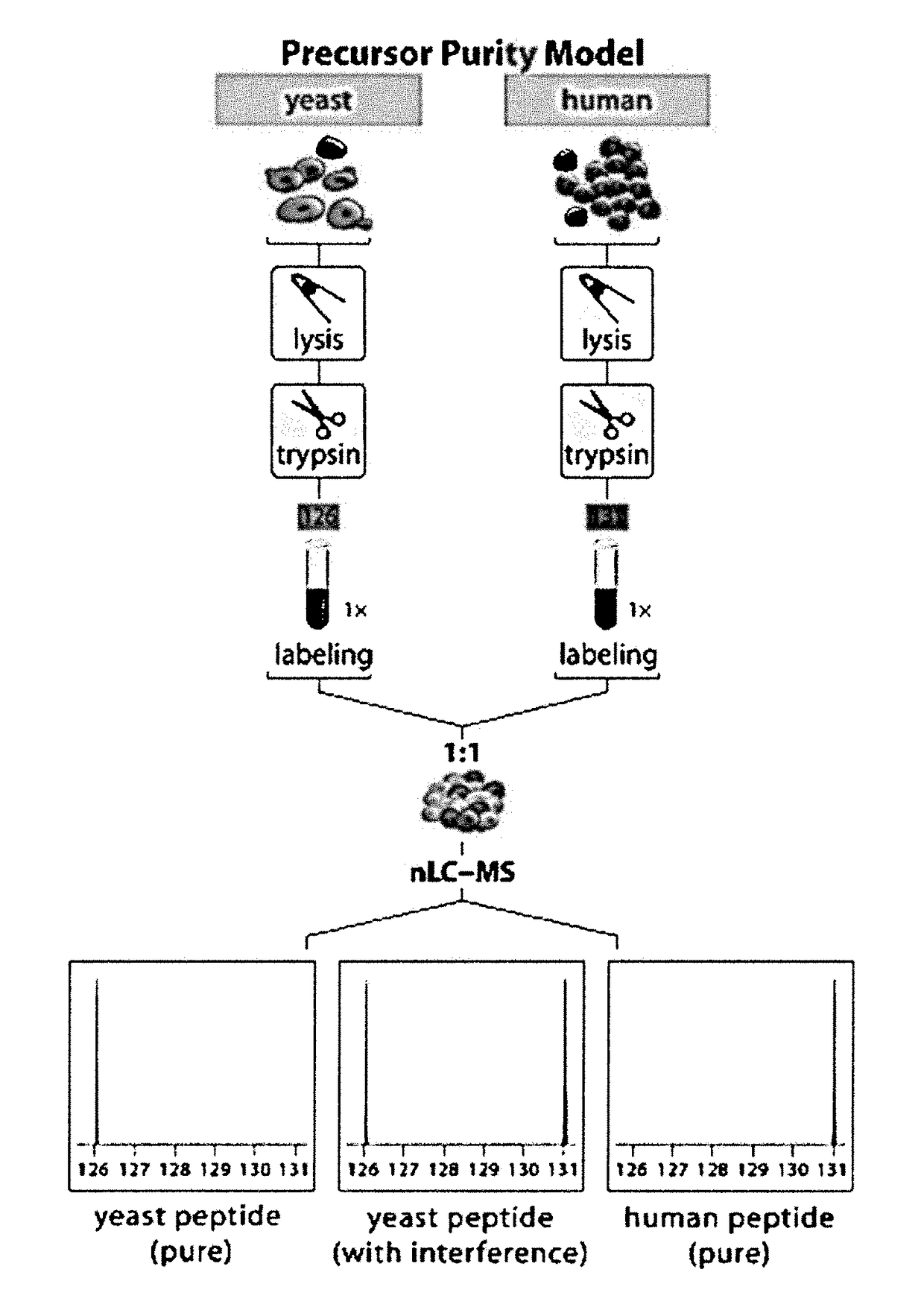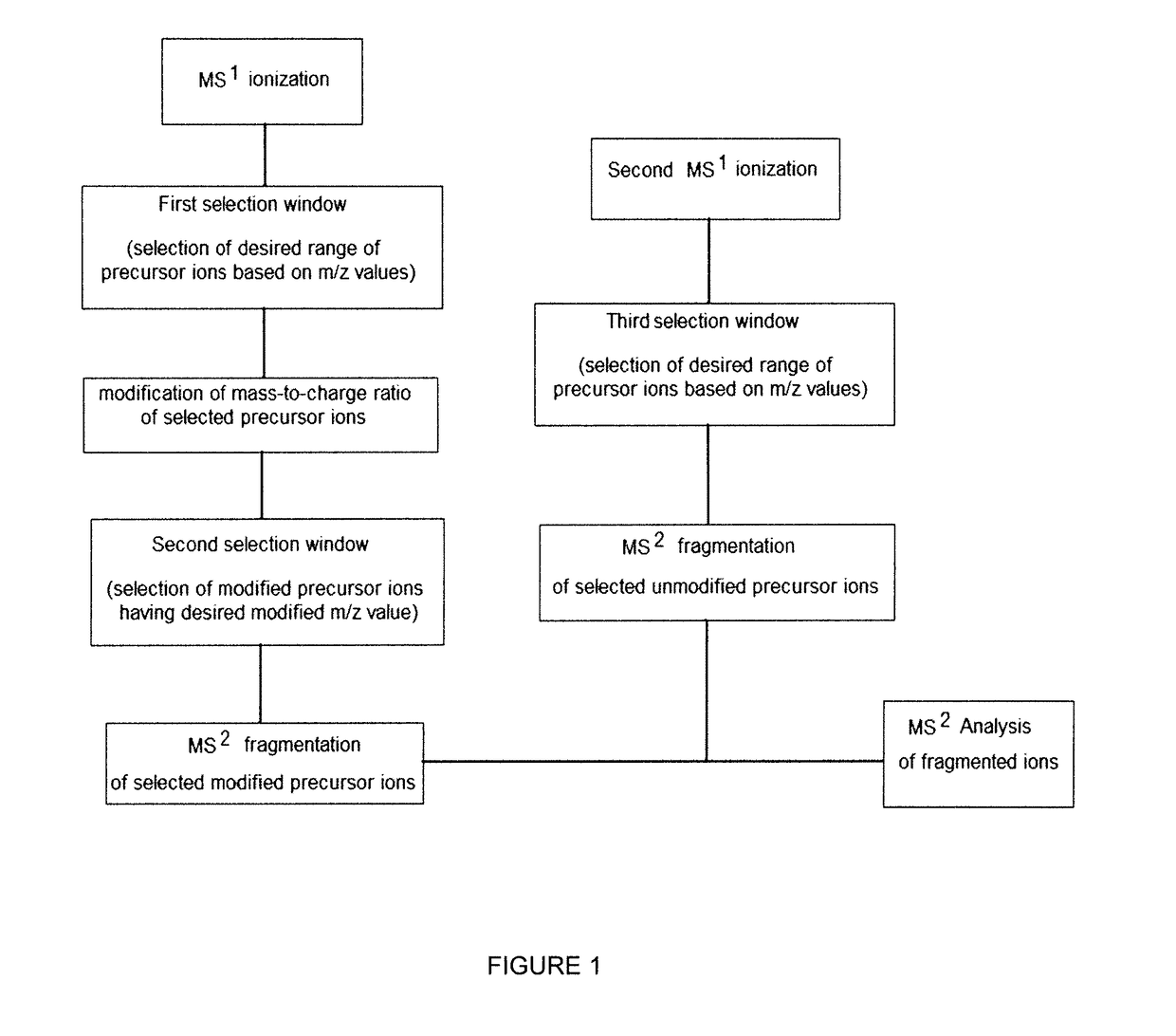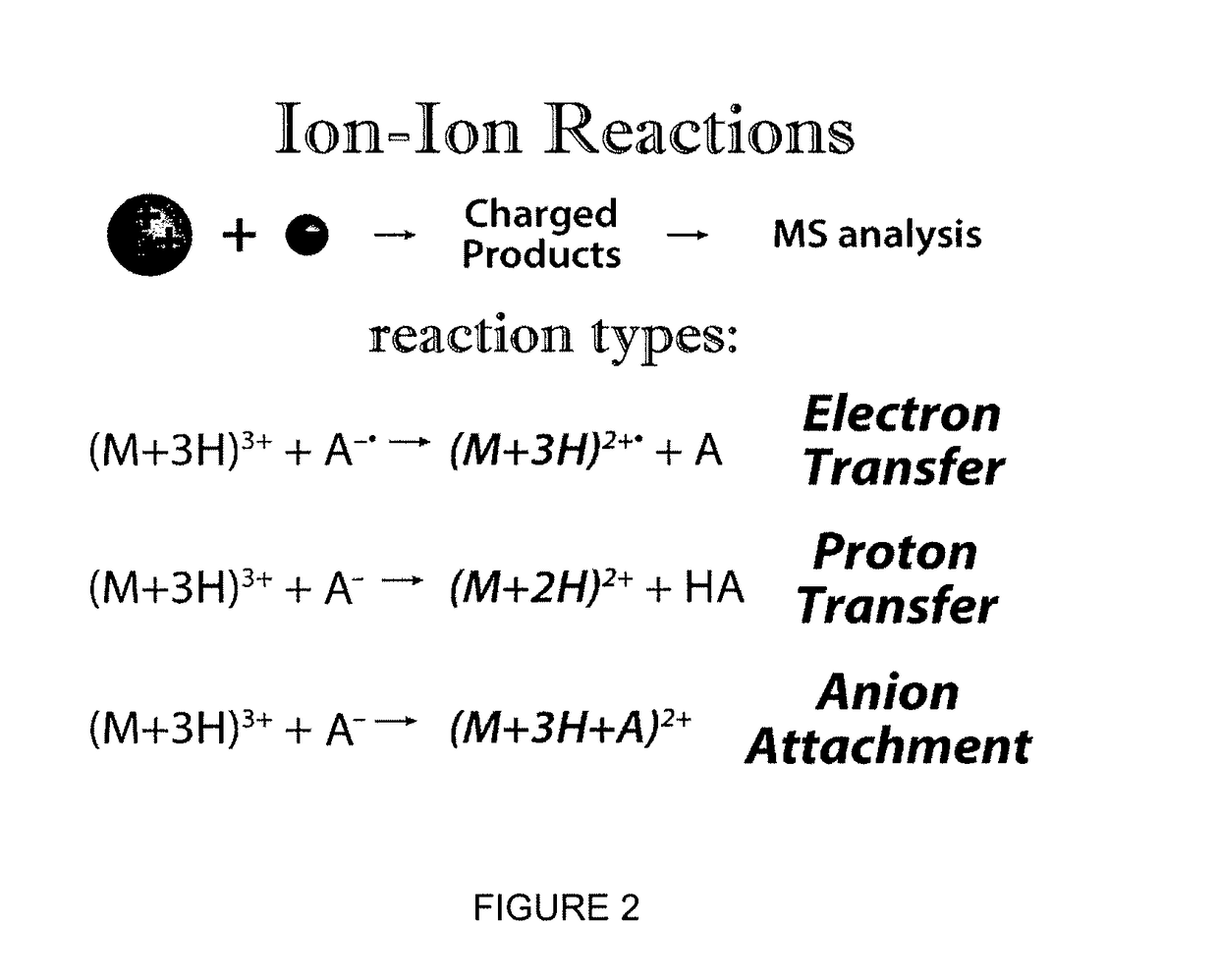Gas-phase purification for accurate isobaric tag-based quantification
a technology of accurate isobaric tag and gas phase purification, which is applied in the direction of instruments, particle separator tube details, separation processes, etc., can solve the problems of less identification and reduced amount of desired precursor ions, and achieve the effect of improving the accuracy of isobaric tag-based quantification and mass spectrometry analysis and quantification
- Summary
- Abstract
- Description
- Claims
- Application Information
AI Technical Summary
Benefits of technology
Problems solved by technology
Method used
Image
Examples
example 1
Gas-Phase Purification Enables Accurate, Large-Scale, Multiplexed Proteomic Quantification
[0216]Protein identification technologies have rapidly matured such that constructing catalogs of the thousands of proteins comprised by a cell using mass spectrometry (MS) is now relatively straightforward [de Godoy, L. M. F. et al. Nature 455, 1251-1255 (2008); Swaney, D. L., Wenger, C. D. & Coon, J. J. J. Proteome Res. 9, 1323-1329 (2010)]. Knowing how the abundance of these molecules change under various circumstances is not [Ong, S. E. & Mann, M. Nat. Chem. Biol. 1, 252-262 (2005)]. Stable isotope labeling by amino acids in cell culture (SILAC) provides a means to make binary or ternary comparisons [Jiang, H. & English, A. M. J. Proteome Res. 1, 345-350 (2002); Ong, S. E. et al. Mol. Cell. Proteomics 1, 376-386 (2002)]. By interlacing these two- or three-way experiments, higher-order comparisons can be obtained [Olsen, J. V. et al. Sci. Signal. 3, ra3 (2010)]. Such large-scale multiplexed ...
example 2
The Role of Gas-Phase Purification in Quantitative Proteomics
[0255]The present methods are useful for providing mass spectrometric analysis achieving a number of goals particularly useful for the analysis of protein containing samples. First, the pervasive interference that occurs during isobaric tagging with proton transfer ion-ion reactions is eliminated. Additionally, the present methods are applicable in the context of the yeast environmental stress response (ESR). Yeast's manageable proteome and available copy per cell data make it an excellent tech development model, while the conserved stress response network makes it medically relevant.
[0256]To maximize biomedical impact, quantitative protoemics should be compatible with human tissues and biofluids. Multiplexing is likewise beneficial as it presents an expedient route to significance testing. Isobaric tagging meets these requirements, but is plagued by ubiquitous and debilitating interference. Such Interference, often undete...
example 3
New Quantmode Characteristics
[0267]The QuantMode scan sequence is designed to be able to be used on ETD-enabled instruments, such a LTQ Velos Orbitrap instrument. Briefly, this scan sequence comprises: precursor selection, precursor gas-phase purification, isolation of the charge-reduced products, reporter tag generation and storage (such as in a dedicated beam-type collision cell), precursor re-injection, precursor isolation (QLT), ion trap CAD (QLT), injection of CAD products into the dedicated collision cell, and mass analysis of reporter and sequence ions together. This scan progression not only produces a purified reporter tag region, but also decouples reporter tag ion production from sequence ion generation to enable a boost in reporter tag signal without the loss of key sequencing ions. The method was validated using a mixed organism model which maximized the occurrence of precursor interference. Using this model, QuantMode was found to produce significant improvements in bo...
PUM
| Property | Measurement | Unit |
|---|---|---|
| width | aaaaa | aaaaa |
| width | aaaaa | aaaaa |
| width | aaaaa | aaaaa |
Abstract
Description
Claims
Application Information
 Login to View More
Login to View More - R&D
- Intellectual Property
- Life Sciences
- Materials
- Tech Scout
- Unparalleled Data Quality
- Higher Quality Content
- 60% Fewer Hallucinations
Browse by: Latest US Patents, China's latest patents, Technical Efficacy Thesaurus, Application Domain, Technology Topic, Popular Technical Reports.
© 2025 PatSnap. All rights reserved.Legal|Privacy policy|Modern Slavery Act Transparency Statement|Sitemap|About US| Contact US: help@patsnap.com



